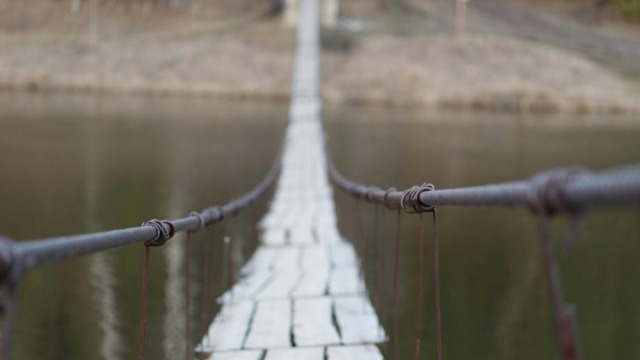Opinion: The Prime Minister finds a path in Trump's global disorder

By Mark Kenny
A version of this article was originally published by The Canberra Times.
Donald Trump has regularly boasted that his deal-making prowess and special relationship with Vladimir Putin meant he would resolve the war in Ukraine quickly.
So, what was his cunning plan, his unique insight? Basically, it amounts to surrender. Abject and dishonourable.
In one of history's more craven capitulations, Trump's stripe has turned out to be yellow rather than golden.
First though, he would extract a US$500 billion price for military support already supplied, via American rights to Ukraine's lucrative mineral estate.
Volodymyr Zelenskyy, who had bravely foregone a US offer of safe passage when the Russians invaded, initially resisted this plunder, declaring he wanted to save his country, not sell it.
But of course, the Ukrainian leader faced what The Godfather's Don Vito Corleone called "an offer he can't refuse".
Trump's cloying accommodation of Vladimir Putin comes dressed in an obviously counterfeit American pacifism. He simply wants to end the "fighting" his supporters insist. This, in turn, relies on an absurd equivalence between resisting military subjugation (every nation's right) and invading a neighbour (an international crime).
On his path to peace, America's master negotiator has repeatedly buoyed the Kremlin with moves that have weakened Ukraine, legitimised an aggressive pariah state, and handed Moscow possibly its greatest morale boost since the fall of Saigon (50 years ago next month).
These include withdrawing Ukraine's strongest negotiating position - the threat of American military might; pausing US military supply shipments; and freezing US intel used to detect Russian troop movements.
From experience, I can attest that outlining these points on social media invites an avalanche of Trump-Putin cultists who willfully ignore who started the war and claim all support for Ukraine amounts to being "pro-killing" and in favour of "endless war".
The gun smoke is so thick around such distortions as to obscure the obvious path to peace, a Russian withdrawal to its own territory. To Trumpists, this simply never comes up.
As Moscow continues to pound Ukrainian cities, longstanding democratic allies struggle to speak their minds, torn between backing international law, or silently siding with the US and by extension, Putin.
New Zealand, a country with a proud tradition of principled independence, panicked at what was the mildest defence of the international order by its own High Commissioner to Britain, Phil Goff.
Speaking at a London event last week, Goff had wondered aloud if Trump genuinely understood history especially as the President had returned a bust of Winston Churchill to the Oval Office.
This was a reference to Britain's failed appeasement of a German expansion into Czechoslovakia in 1938 which had been opposed by Churchill before he was PM.
For raising this, Goff was sacked. Not counselled, sacked. Yet his question remains. Few who know Trump personally, would answer yes.
There are no such delusions in Whitehall nor Brussels, where EU Commission President Ursula von der Leyen convened an emergency meeting of European leaders on Thursday to embrace Zelenskyy and declare a "clear and present danger" in European security. Calling it a "watershed moment" she proposed an astonishing $1.3 trillion defence package.
"Europe has to be able to protect itself, to defend itself, as we have to put Ukraine in a position to protect itself and to push for a lasting and just peace," she said.
The concept of a "just peace" has not once passed Trump's lips, nor those of Putin and their witless apologists.
For Australia, entangled in ANZUS, AUKUS, and with US bases such as Pine Gap, there are particular challenges.
On the plus side, Ukraine's right to security within internationally recognised borders is a bipartisan belief in a tight election now set for May. On the negative side, Australia's consensus is no longer shared by Washington.
Alliances and assumptions in Trump's new global disorder have crumbled. As Karl Marx wrote, "everything that is solid melts into air".
Albanese has been careful not to cavil with Trump even when the American branded Zelenskyy a dictator.
Peter Dutton called that "dead wrong" but Albanese, awaiting Trump's decree on Australian steel and aluminium exports, was nuanced. Some would say mealy-mouthed.
Yet on the possibility of Australian troops participating in any international peacekeeping mission on Ukrainian soil, it was Dutton who baulked, whereas Albanese sounded purposeful.
This reflects the PM's evolving confidence that enforcing a peace deal in Ukraine can be presented in Washington as responding to another Trump beef, that Western countries have been goldbricking for years and relying on American taxpayers to fund their security.
US-friendly leaders like UK Prime Minister Keir Starmer and French President Emmanuel Macron are also adopting this "calm words-strong action" formula. Both are pursuing the goal of a European-led peace-keeping force in Ukraine along with increased defence spending. Macron has even floated the idea of providing a French nuclear umbrella for Europe. But both also stress that US security guarantees in Ukraine are essential.
Albanese's statement of potential participation aligns Australia firmly with like-minded rule-of-law democracies. In truth, any personnel deployment would largely be symbolic. But that symbolism in a more lawless world matters. Both at home and abroad.
It puts the Albanese government on the right side of the case for defending international law and justice without insulting a brittle president going in the other direction.
Mark Kenny is the Director of the ANU Australian Studies Institute and host of the Democracy Sausage podcast.








